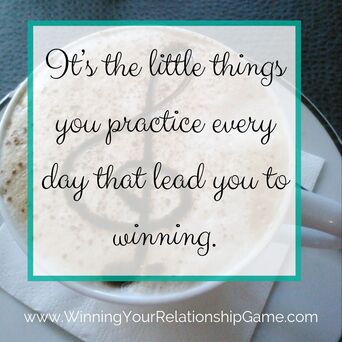|
We celebrated together which doesn’t always happen. If you don’t know, my husband works away and sometimes we miss spending important days together.
We talked a bit about the choices we’ve made in our shared past and how it’s impacted us. We discussed some future plans too. We talked about how every decision has a cost and you have to decide if you’re willing to pay it. One of the decisions for us has been the lifestyle we’ve chosen. There’s been a big cost to us like not spending certain times together, not sharing in certain things, but the benefit has been a great payoff too. We’ve been able to travel with our children. For the past 10 years, we’ve travelled somewhere new every year. It’s made us more diverse as people, a couple and a family. We feel it’s been worth the cost. Many families spend the day to day with each other, never connecting, never really enjoying each other, taking each other for granted. I joke with my husband that we have 3 honeymoons a year. No doubt things would be very different if we’d made different choices along the way. Would they have been better? Maybe they would have been worse. I believe it taught us an appreciation of our time together. Maybe we’d have found our way to that without being apart. There’s no way to know. Now we anticipate seeing each other, and we’re sad to part, but we immediately start to plan and look forward to the next time we’re together. It hasn’t always been that way. There’s many times we’ve felt isolated and taken for granted, so it’s a constant readjustment, renegotiation, and reassurance situation. So my question for you: How connected are you and your partner right now? Are you in a cycle of non appreciation for each other? Do you look forward to spending time together? Can you talk to your partner about how you’re feeling? If not, can you move in that direction? Practice Time: If you feel disconnected from your partner, think back to the last time you felt connected. What were the BEHAVIORS that YOU were doing at that time? Were you listening attentively to your partner? Were you smiling at them? Were you holding hands and going somewhere fun together? Recreate the scenario as closely as you can. You might not feel like it, but you don’t have to. Just DO it. Even from a distance, Allison PS-Join me in my self coaching program if you want a little extra.
Comments
here are several criteria to successful behavior changes. First, there has to be a desire to change. Second, there has to be a substitute for the problem activity. Third, a system of accountability ensures lasting change. While it is fairly easy to find an accountability system, it’s even easier to find a substitute activity. The really difficult part of this equation is to develop the desire to change.
How can you develop the desire for change to occur? There are two types of motivation. One is a “towards” motivation. Examples of a toward goal is regaining health or reconnecting in lost relationships. The second type of motivation is “away from” motivation. Examples of away from goals are losing employment or losing my residence. The best type of goal builds in both towards and away from motivators. Another method of building motivation is to increase the discomfort with the present situation. This is often what occurs when an Intervention occurs. Loved ones raise the awareness of the negative aspects of the situation and outline clearly what the boundaries are for the future. Often this involves a withdrawal of support or a suspension of relationship which creates a new level of discomfort and urgency for change to occur. While I am speaking to work with addictions, these techniques can be very useful for any type of behavioral change. If you have struggled with a particular behavior, identify the towards and away from motivations. You can create a motivator to “turn up the volume” in one direction or another. You can do this with yourself, but embedding a system of accountability into it is helpful. For instance, a friend and I are training to run a 5k race. We agreed that every day we are supposed to train and we don’t, we will pay the other person $1. I don’t want to pay her $1, but I really don’t want to have to tell her I didn’t follow through. You can see that even if we aren’t very good at our routine, we won’t likely go broke! You can be sure though, that we eagerly report to each other when we do our workout (and even when we don’t). There is a towards motivation: being prepared to run a 5k. There is an away from motivation: paying the $1. There is a system of accountability: we report our success to each other. The replacement activity in this case is the running which takes the place of other activities in our lives such as watching TV or sleeping in. What ideas can you come up with for establishing your own behavior change? Constantly changing, Allison Sign up for my email list and I’ll share some great relationship tips with you! https://www.winningyourrelationshipgame.com/sign-up-for-4-awesome-videos.html Concerned about porn use by you or your partner? This video discusses why porn might be detrimental to your relationship. Sign up for my email list and I’ll share some great relationship tips with you!
https://www.winningyourrelationshipgame.com/sign-up-for-4-awesome-videos.html  Outcomes are goals that we strive for. As a culture, we are pretty addicted to meeting goals. We’re taught how to set goals that are SMART. (Specific, Measurable, Attainable, Realistic and Time Limited). Which is great if you actually could set a goal like that! Believe me, when I worked with an agency, there was like 1 person out a 100 who could actually set a goal that the auditors thought was SMART. In your relationship, what’s your goal? Is it to fight less? Not fight at all? Is it to be “in love” again? A lot of times, I have people say, “I want us to get back to where we used to be.” Those are all pretty big goals. What happens when a goal seems out of reach? When we look at it and it seems impossible. Fighting less might seem like a great goal, but what are the steps it takes to get there? Do you know the steps? If you knew and could do the steps, wouldn’t you have already done them? When we start doing these little steps, we get frustrated because we feel we should be at the goal already. We feel shame and blame we’re not meeting what we see as our desired outcome. We also fail sometimes. I can’t tell you how many couples are making good progress and they slip and have a huge row and they feel like they’ve lost all the progress they’ve made. All that can make us give up and stop going for it. It seems like an exercise in futility, it’s too difficult, or we just aren’t capable of doing it. Well, I’d like to reassure you. When the end game seems impossible, it’s time to focus on the process, not the outcome. Using a football analogy here: If your desired outcome is to win the Super Bowl, but your team has not learned to run a play yet, you better focus on running the play! Not only do you need to learn to run the play but you need to become great at it! You are going to run that play over and over until it’s second nature. You’re going to know that play inside and out. At first, the play is going to be awkward. At first, the whole team isn’t going to be good at it. There’s going to be a lot of failures in making the play. But eventually, your team runs a great play! They win a game, then another and before you know it you’re a Super Bowl contender. That outcome that seemed so impossible is now within reach. But only after you’ve mastered the process. There have been times in my relationship when I’ve felt happiness wasn’t possible. I didn’t think it’d ever happen again. That seemed like an outcome that was too much to hope for. Turning that around took a focus on the process. The processes of a happy relationship, (I call the pillars) are compassion, communication and commitment. Making the little decisions every day that align with these qualities is what got me closer to the end goal. I had to be kind when I didn’t want to be. I had to decide to stay just one more day when it would have felt great to walk out. Talking about things that made me vulnerable created intimacy little by little. I focused on the process because I didn’t know how to get to the outcome I wanted. I was so far away from it, I needed a telescope. By paying attention to the process, I moved closer and closer, with consistency and persistence, until I could see happiness on the horizon. I tried to stay focused on my own behaviors, not my partners. By continuing on, we’ve found our way to a place of happiness I don’t think we ever imagined. We’ve now passed our 20th anniversary and we enjoy each other more now than we ever did. Do we still disagree? Yes. Do we still annoy each other? Yes. We fail all the time. But we focus on the process. Practice time: What is your desired outcome? What processes do you need to get there? It’s the little things you practice every day that lead you to winning. What is one process you can commit to today? Consistency and persistence are mandatory! Let me know what you decided. Comment below, I’d love to hear from you! Cheers to the process! Allison PS-Did you know I have a Self Coaching Program? It's available here. Now, recall the last time you got angry at your partner about something. Was it over the dirty laundry left in the bathroom floor? Now, in the grand scheme of things, that dirty laundry really isn’t’ that big a deal is it? Get curious about what’s really going on. What’s really got you going is the meaning you’ve placed on that situation. So does dirty laundry on the floor even though you’ve asked a million times mean that you’re not being heard? Does it mean that your partner doesn’t care about what’s important to you? Does it mean you feel disrespected? Apply some curiosity and you’ll find a deeper meaning.
Pretty soon you’ll understand why you’re so riled up. The dirty clothes serve as evidence for something that’s meaningful to you. The ability to communicate in deeper terms allows you to more truly express yourself to your partner and it allows them to know you more and more. Our intimacy grows when we can share our inner selves more with our partners. Maybe even more important is recognizing that the same way you get wrapped up in something insignificant, applying deeper meaning to it, is your ability to recognize the same thing happens to your partner! This is where curiosity helps again. When your partner is angry at you, can you get curious about the deeper meaning? What’s on the surface is only minimally related to the deeper attachment need, our need to belong. If you can tease out the deeper meaning for your partner, you can help to soothe the part of them that’s feeling a bit shaky. What a wonderful thing to be able to do for each other. Practice time: OK, cast your mind back to the last time you got irritated or flat out mad with your partner. What was the surface issue? Did it really mean that much? Or was there a more significant, deeper, truer meaning? What was it? Can you initiate a conversation with your partner and let them know what was actually happening for you? This isn’t to resolve it, it’s just to let your partner know you better. If you want bonus points, think about the last time your partner got angry with you. Look beyond the surface issue and get curious about the deeper meaning. Can you initiate a conversation about that with your partner? You might just end up knowing them better too! Curiosity might have killed the cat, but it saves relationships! Stay Curious Lovelies, Allison I want you on my email list! I'll send you 4 videos with some great, practical relationship tips and share so much more! SIGN UP HERE  The question I want you to consider today is how good are you at listening? Do you really hear your partner? Most of us are pretty good at listening until we hear something we don’t like. Then we stop listening and begin to mentally draft our response. Learning to listen well is a terrific Winning behavior in a relationship. I’m going to walk through a process with you for speaking and listening and hopefully, you’ll give it a try with your partner. In every communication, there’re two roles to play. One person is the speaker and one (or more) person is the listener. We communicate in multiple ways, with words, gestures, tone and body language. In fact, all behavior is communication. There is no NOT communicating. It’s impossible not to communicate something to the person we’re with. Unfortunately, often the message received is not the message sent! If the first thing out of your mouth makes your partner defensive, your communication has failed. If the goal is for your partner to hear what you’re saying, you’ve got to be more aware of your own communicating behaviors. Remember that you can only control your behaviors, so presenting information in a way that it will be received is YOUR responsibility. Now I always think it’s best to have a plan when you’re not sure about something. It’s also great to give yourself structure when there’s something that’s emotionally charged. You don’t want all those feels to take over your communication. My favorite structure for communication is from Imago Therapy. Structure can feel awkward at first. But believe me, it helps you take that necessary pause to consider your communication. If it helps, isn’t it worth feeling a bit awkward? So this is how it goes: The speaker’s responsibility is first to “make an appointment”. This isn’t necessarily a formal appointment. It could be just asking, “Is this a good time to talk to you?” How many conversations have gone down the tubes because one of the parties was tired or hungry or in the middle of their favorite TV show? So step 1 of successful communication is ensuring it’s a good time to talk. This may seem silly, but isn’t that the ultimate in respect? What do you do if your partner says, “No?” This is a request, not a demand (ever notice most of us don’t do so well with demands?). A request can be declined without consequence. So a “no” doesn’t mean you stomp off and slam the bedroom door. It doesn’t mean you take it as a rejection and blow up. It also doesn’t mean your partner can avoid the conversation forever. If there is a no, ask when there might be a better time. Set an appointment. Step 2 for the speaker is to state what you want to talk about using nonviolent language. Focus on your feelings and don’t tell your partner’s story. Things to stay away from are “you never”, “you always” and anything insulting. Generally it’s a good idea to stay away from the word “you” altogether. Remember writing things out is a great way to practice! I always suggest my couples do this at least a few times to get a feel for it. You will catch on much quicker than you think. Step 3 for the speaker is to not trigger your partner’s defenses. This means your words cannot be critical or accusatory. Your words should not be sarcastic, or delivered with a contemptuous tone. You will have to carefully select your words. It’s a good idea to practice the delivery looking at yourself in a mirror. You can see so much in your expression that you’re mostly unaware of when you look in a mirror. Remember this is growth, so expect pain! Step 4 for the speaker is to stay on topic. You can’t solve every issue with one conversation. Your partner also doesn’t need a full accounting of every ill you feel they’ve done you. If you tend to be a kitchen sinker, time for a behavior change! Learn how to be really effective at this and you can resolve issues, but only one at a time. As your confidence builds you’ll have success, and you’ll be more relaxed with each other. Then you’ll find this much easier! Step 5 for the speaker is to maximize agreement. Every few sentences, you want to gain agreement from your partner. Make sure they are comprehending what you said by having them mirror it back to you. This helps catch misunderstandings early on. Remember most of us listen until we hear something we don’t like, then the listening stops. Frequent checking in keeps both of you in the moment and focusing on the message being delivered. The last step for the speaker is to thank your partner for listening. OK, did you think that was challenging? You might not think so, but it really is. If you think that was tough, read on for the rules for the listener. Rule number 1: Listen only. No speaking except to mirror agreement/understanding. Don’t interrupt. If you feel something rising up in you that wants to retort, focus on the words your partner is saying. Listening without reacting doesn’t mean you agree or give up your right to respond. Do you ever watch Judge Judy? Sometimes they have a case there between people who were in a relationship that’s now gone bad. One person starts talking and the other cannot control themselves, they speak out and interrupt. Judge Judy jumps in and says, “Be quiet or you’ll be out of my courtroom”. You can laugh about that and shake your head, but how often do we do the same thing to our partner? The only problem is we don’t have Judge Judy to intervene, so our partner has to fight for their right to be heard. Pretend you have Judge Judy sitting in front of you. The second rule for the listener is to mirror back what was heard. You do this by saying, “What I heard you say was…..” You can repeat exactly what your partner said or you can paraphrase, but don’t add your own spin to it. You’re not allowed to introduce your own thoughts to the discussion. You’re only allowed to ask two questions, one is, “Did I get that right?” The other question is the third rule for listeners. The question here is “Is there more?” You then allow your partner to say more about the issue if they have more. You repeat steps 1, 2 and 3 for as long as your partner needs to speak. If they are sticking to the one topic rule, then it shouldn’t take more than one or two times asking that question to get to the end. The speaker and the listener should agree that they are both understanding (doesn’t mean agreeing necessarily) the issue from the speaker’s perspective at this point. When the speaker is done rule 4 is to summarize. After summarizing, make sure you got it all, by asking, did I get it all? If not, go back in for some clarification. The speaker and the listener should again agree that they both understand. The fifth rule for the listener is to validate with empathy. Validation does not equate to agreement. Validation means if you really heard your partner, you can begin to see their perspective. It might be different from yours. You might demonstrate this by saying, “I can see why you’d feel that way because…..”; Or, “I can see why you’d react in that way........” Developing empathy and validating your partner shows respect for their feelings. It doesn’t mean you think they are right or wrong. And the last rule for the listener is to thank their partner for sharing. Are you wondering how you can use this if you’re playing alone? The same way it’s outlined here. If you approach or respond to your partner in this way, do you think your discussions are going to go better? I’m betting they will. Remember, behind every complaint is a deep personal need. That goes for both you and your partner. Let me show you this in action. Speaker(S): Is this a good time to talk? Listener(L): Sure S: I’d like to share my feelings about our laundry challenges, OK? L: Sure S: I believe I work hard, just like you, and we should both share household chores. You know what I mean? L: You and I both work hard and you want us both to work together at home too. Did I get that right? S: Yes. L: Is there more? S: Yes. I’d like for us to come to an agreement on how we get our laundry chores completed. It seems that it never gets DONE. You know what I mean? L: You’d like for us to agree on some sort of end point for getting the laundry done. Did I get that right? S: Yes L: Is there more? S: Yes, I know it never really gets done, but I really get frustrated when I gather everything up and get it washed and then laundry comes from somewhere and needs to be done urgently. You know what I mean? L: You are bothered when you think the job is done and then find it’s not. Did I get that right? S: Yes L: Is there more? S: Yes. I think the problem is having more than one place where dirty laundry is held. I’d like to suggest we establish a formal place, or two, that is where dirty laundry stays until wash time. Then I can get it all done and not have to worry about being pressured to get that urgent thing washed. You understand what I’m saying? L: I think so. You’d like to have a couple of laundry holding areas so you can always locate the clothes that need to be done. Then you aren’t stressed out because there’s that one more load that you didn’t know about. Did I get that right? S: Yes. L: Is there more? S: Just that I’d like to agree on those holding areas now and agree to use them exclusively. I can get a hamper for the spare room where you change if you’ll agree to put your uniforms in there every day. Does that make sense? L: Yes. You want all the laundry in that hamper or in the bathroom hamper and you’d like me to ensure my uniforms go in one of those places. Did I get that right? S: Yes. L: Is there more? S: Yes. But first, is that agreeable? L: Yes, I have no problem with that. S: OK. It seems that I’m taking on the responsibility of getting the urgent laundry done now. I don’t think that’s how it should be. If the hamper idea doesn’t work, I’m relinquishing responsibility of washing suddenly located uniforms. You know what I mean? L: You feel like you shouldn’t have to scramble to do my uniform if I don’t get it into the hamper. Did I get that right? S: Not exactly. I’m saying, you have to own that. L: OK, so you’d like for me to do my own urgent laundry rather than you doing it. Did I get that right? S: Yes. L: Is there more? S: No, that’s it. I’d just like to know if you’re in agreement or do we need to make another plan? L: No, I’m really fine with that. It stresses me out to when I find my dirty uniform so if it relieves both of us of that, I can be diligent about putting it in the hamper. S: Thanks for listening. L: Thanks for sharing. OK, that’s a lot isn’t it? But how many silly arguments have been born out of a similar issue???? Many, many, many, at least in my house! Are you resisting the formal structure of this script? Remember, your best attempts at communication have gotten you where you are. It’s time to look at some more productive behaviors. Having a structure for communication makes it a safe place for both you and your partner. I promise you, if your relationship is going to change, you’re going to have change. Adopt winning behaviors, your relationship will improve. Practice Time: Make a commitment to speak or listen according to this script for the next two weeks. Use the script for either every day for the next two weeks. Follow the script even if your partner isn’t playing with you. Feast on your success and I’m confident you’ll see some change in your relationship. Sign up HERE for my email list and I’ll share some great relationship tips with you! I'm listening ;-), Allison
Some qualities of relationships which often are present when affairs occur are high conflict, low emotional warmth, neglect of pleasure, and discomfort with emotional closeness by one partner. How can you use this information to strengthen your relationship? Building and reinforcing the qualities indicated above can be a great starting point. Using the embedded worksheet, you can identify areas where attention is needed. The lowest numbers indicated by either partner will direct your focus. For instance, if engagement is low for one partner, it may be helpful to learn some healthier means of addressing conflict. If excitement is low for the other spouse, perhaps they need to take some risks. Next: How do you know what to do about it? Agree on some concrete actions to work on. In our above example of engagement, determine what each partner pictures as “engagement”. Maybe one sees that as taking long walks holding hands and discussing issues. Maybe the other partner sees that as giving each other a kiss good bye every time they part. Everyone gets to have their own definition which means they are all valid!! Here’s the kicker……trade rating scales with each other. After all, the goal is each partner’s ratings will move higher and higher. What can each improve on that will lead to higher relationship satisfaction for their partner? Even small changes can lead to relationship improvements. (You do get credit for effort when you’re working on your relationship.) Sign up HERE for my email list and I’ll share some great relationship tips with you!
1. It’s ALL about you!
Relationships are our biggest teachers. Often they are our first voluntary “belonging” type relationships. This makes them unequaled in highlighting our weaknesses. When our belonging gets shaken, a primal evolutionary fear emerges. It pushes us to action which our history tells us will solve the problem, soothe the fear. Often, this action brings us exactly the opposite of what we want. We only have control over one person…..that’s ourselves. Focusing your energy and attention on what your partner needs to change is very inefficient. You’ve got to stay focused on the things you need to change. A relationship is a system and when you alter one part of a system, the whole thing changes. This is great news because that means you can create positive change in yourself and it will impact your relationship. 2. You will have to change. That’s the sad truth. You can’t count on your partner changing. Nothing’s going to change unless you do. What do you want to change? Change behaviors that are not contributing to the health of your relationship. We all have them. Changing means you’re going to have to behave in different ways than you currently do. Unfortunately, most of our behaviors are automatic. Just like changing any habit, you’ll have to put in effort to remember to change. The good news is, after you’ve established a new habit, it gets a lot easier. 3. You have to do it. You’ll have to spend time learning and practicing new behaviors. That implies a time commitment as well as consistency and persistence. Penciling in some reading time on Tuesday afternoons won’t cut it. Daily practice, every day, even when you feel that it’s not working is the definition of consistency and persistence. Harsh reality is, change doesn’t happen without some effort. If you’re not willing to do that, you might not want to improve your relationship as much as you think you do. Have you proclaimed, “I’m working so hard to make this work.” Or, “I’ll try anything to make this relationship better.” Then I don’t care if you think it’s silly or hard. You’ll do anything, right? If that’s true, then do it. Practice Time: Are you willing to be the change agent in your relationship? Can you devote time and attention to identifying and changing your own behaviors? Are you willing to be consistent and persistent with that attention for at least 90 days before giving it up? If so, you may well master your Relationship Game! Playing Through, Allison PS-Want to get more relationship tips and practical advice? Sign up for my email list HERE! A-You have to decide to. In every situation there is something you appreciate or be grateful for. For instance, if it's raining, you can be mesmerized by the drops hitting the puddles or be grateful that the plants will have what they need to grow. Stress hijacks our attention and focuses us on survival. But most situations really aren't that important and we have to recognize that we don't have to allow our thoughts to run away from us, we can control them with some practice. Cognitive Behavioral Therapy tells us events and feelings are separate entities. Our thoughts about events are what lead to our feelings about it. For example, it’s raining. I think, “This sucks! There go my plans for today!” Then I end up feeling disappointed and bad. I can choose to think different thoughts that lead to different feelings. For example, I can think, “This sucks, and I’m disappointed, but maybe I can find something interesting to do inside today. Yeah, I got that new puzzle! I’m going to work on that today!” I’ve got a whole new feeling coming out of the same situation just by altering my thoughts. This can take some practice, but I’ve written lots of other articles addressing how our thoughts, feelings and behaviors impact each other. If you feel that you’re just depressed and can’t succeed in changing your thoughts, find a therapist that practices Cognitive Behavioral Therapy. Best of luck, Allison PS-Give me your email and I'll send you my 4 favorite relationship tips! Click HERE!  There’s a saying that if you don’t care where you’re going any road will take you there. You want to be deliberate about the road you’re travelling. In order to make lasting change, you have to set a goal. Setting a goal will help you Win Your Relationship Game, but there’s some planning to do first. Winning Your Relationship Game has a lot to do with habits and behavior change. Many of the lessons are based in research that’s proven to support positive relationships and behavior change. You aren’t going to rely on will power. Anyone who’s had to try to diet knows that will power is very unreliable. You’re going to set goals that allow you to capitalize on motivation. Your initial goal, I like to call a personal motivation statement. This is where you’d ultimately like to end up. Take just a minute and focus on what change you’d like to see in your relationship. What is it you’re hoping to improve? Now, go back and look at it again. Does it focus on changing something about your partner? You can’t change anyone’s behavior except your own, so if you thought about something your partner needs to change, think again!! This is the beginning of your personal motivation statement. Right now it can be fairly broad. As you go on, it will change, you’ll gain insight and tweak it to fit. Remember, this is the foundation for moving forward so it’s worth some thought. Having a Personal Motivation Statement is good, but to really ramp up your motivation, you have to know why that Personal Motivation Statement is important. You might be able to tell that I like to play games whenever I can. It makes life more fun. To clarify a Personal Motivation Statement I like to use a game called “The Five Whys”. The five whys are actually business concepts used to do what’s called root cause analysis. It’s also a really useful tool to help you dig deeper into your thoughts and feelings. Refer back to your personal motivation statement. You’re going to ask yourself WHY it’s important to you. You’ll get your answer and then you’ll ask again WHY that is important to you. Then you’ll have another answer and you’ll ask WHY that is important? You’ll continue to do this for five cycles. Don’t rush through this. If you are persistent, it will lead to a very clear idea of the value of your personal motivation statement To give an example: My Personal Motivation Statement might be: I want to feel closer to my partner. 1. Why is it important to feel closer to my partner? Because closeness feels good. 2. Why is it important to have the good feeling of being close? Because I feel more secure when I’m feeling close. 3. Why is it important to feel more secure? Because feeling more secure reduces my anxiety about belonging in my relationship. 4. Why is it important to have reduced anxiety about belonging? Because then I can be relaxed and really be myself. 5. Why is it important to feel more relaxed and be myself? Because then I feel have a stable foundation for all the other areas of my life. Just walking through this exercise reveals something deeper about of what is important to me. I know exactly why it’s important for me to be closer to my partner. It’s going to put me on the road of changing the right behaviors creating more closeness with my partner. That’s the basics of setting a Personal Motivation Statement about your relationship. Having a Personal Motivation Statement to focus on is a habit you can start today. It can be revised as needed, but every day, you want that statement front and center in your awareness. I want you to find such value in focusing on that statement so that by this by the time this program is over, you’ll continue to use it to motivate you to your goals. The recap:
Practice time: Take all the time you need to work through this. It should take you a while and it might be frustrating. Don’t rush it. If you have an answer that just doesn’t seem right, sit with it. Trust yourself. We all have a deep inner knowing, so when it’s your truth, you’ll know. If you get stuck, send me an email at [email protected] . I would love to hear from you! In the meantime, sign up for my email list and I’ll share some great relationship tips with you! Sign Up HERE! |
Helping You
|
||||||||||||









 RSS Feed
RSS Feed

